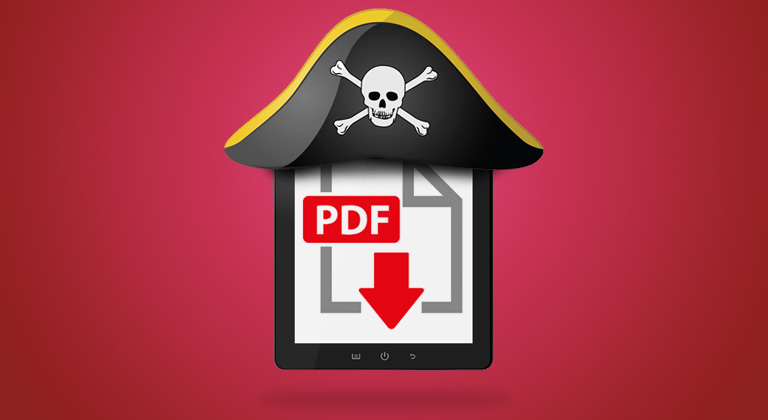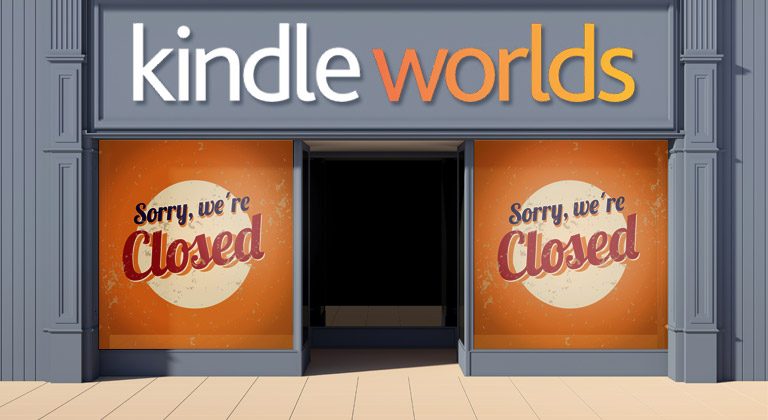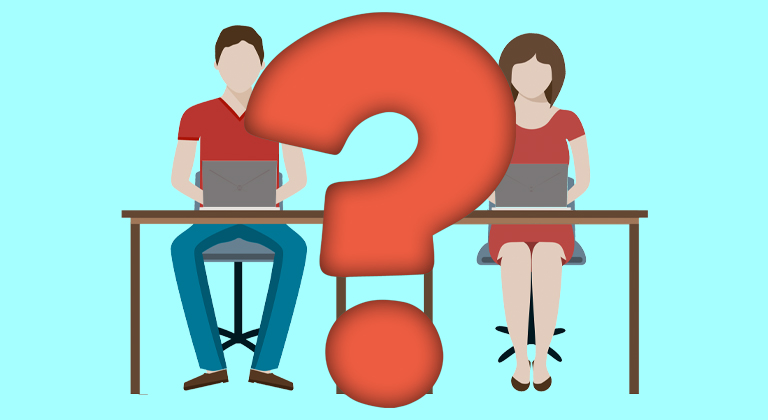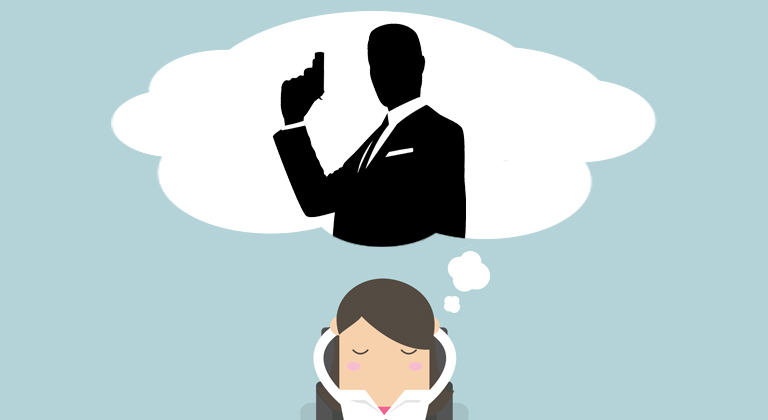Book Piracy – Rumors, Facts and Opinion
In order to send eBooks out to the most number of readers, Hidden Gems asks authors to provide different file formats. With such a wide variety of devices and applications, the more formats we can provide, the more potential readers we can satisfy. However, one objection we hear at least once a month is about book piracy – specifically having to do with PDFs. “Do I have to supply a PDF version? I’ve heard PDF versions are much easier to pirate.”
I wanted to bust the rumors that give rise to this objection, and while I’m at it weigh in on the overall issue of piracy.
First of all, the short answer to the first question is “Yes”, we do need a PDF version. Many of our readers are not tech savvy, and often have issues with the other formats. The nice thing about the PDF version is that almost every device can open and read it natively, meaning it allows the book to be accessible to more readers.
But it’s the second part of that objection that I want to clear up. PDFs aren’t easier to pirate and even if they were, only supplying a MOBI and/or EPUB version of your book isn’t going to help at all.
Let’s break it down.
If PDFs are easier to pirate, shouldn’t we stop supplying PDFs?
Working backwards, let’s start with the assumption that PDFs are somehow easier to distribute to pirate sites. If true, logic dictates that the simple solution would be to not produce or distribute PDFs in the first place.
Tada! Problem solved, right?
Unfortunately not. An ebook is simply a digital version of your book put into a specific format for eReader devices or software to interpret and display. A MOBI file is just a different format than an EPUB file which is just a different format than a PDF file. And in order for all of those devices and software programs to work they rely well known, freely published standards and rules that define those formats. If a format doesn’t follow those well established standards than the eReaders cannot read them.
And what do software programs excel at doing? Applying clearly defined sets of rules, quickly and efficiently.
Thus, the eBook conversion software industry was born. With the press of the button, you can use free software like Calibre to convert a book file from one format to another in seconds. In fact, there are even websites that do it – no software or registration required. Simply upload your book in one format and have it emailed to you in a different format.
Not only is this type of software easy to use, but it’s completely legal and useful for legitimate purposes like when an author needs to convert their own books from one format to another. Unfortunately, there’s no way to prevent others from using it for less legitimate purposes – like someone converting a book that is not their own from one format to another. (Ironically, you might be surprised to learn that the hardest format to use as a source file when converting an eBook is actually a PDF. That’s right. The reason is that a PDF is almost like a bunch of pictures of your book pages put together, so it’s very difficult for conversion software to use it to create different eBook formats like MOBI or EPUB. Not if you want something that is easy to read and navigate, at least.)
So even if it was somehow easier to upload or download a PDF file to a pirate site, it doesn’t matter. If you’re providing a MOBI or EPUB version instead, the would-be pirate could simply convert it first. If they’re already taking the time to steal your work and send it to websites for free, spending an extra few seconds converting the files isn’t going to stop them.
But are PDF files easier to pirate?
Quite simply, no.
As discussed above, a PDF is simply one type of format you can convert a digital book file into, with the added benefit of being so common and well established that most devices can open them natively, without any extra software installed.
But that doesn’t make PDFs inherently “easier to pirate”. You can copy an EPUB or MOBI file just as easily and quickly as a PDF, and it would take the same time and effort to upload any of those formats to a pirate site.
So why are so many convinced that it’s easier to pirate PDF files?
DRM
One possibility is DRM. While it’s true that you can more easily apply DRM to MOBI and EPUB files than PDFs, very few authors add DRM to their books. The reason for that is that customers hate it. DRM just makes using files harder for customers that actually paid for them. Anyone that wants to steal the work knows how to strip that DRM off very quickly and easily, and if they don’t, it’s just a google search away.
Ease of Use
Another possibility is the one we brought up earlier as the reason we like to supply PDF files to our readers. They’re much easier to use for those that aren’t tech savvy, which makes them accessible to more people.
So wouldn’t that also hold true for a pirate site distributing a PDF? More potential book thieves because PDF files are easier to open?
Possibly. However, you also have to consider that anyone not tech savvy enough to work with an EPUB or MOBI file is likely not someone tech savvy enough to search the web for reliable pirate sites or install a BitTorrent client to steal books in the first place. And even if they did all that, then that means they likely also have the skills to find a website or install a software program to convert those files to a PDF.
So what should an author do?
My advice is to not lose sleep over it.
Unfortunately, piracy is a fact of life in the digital world, and if the big movie and game companies can’t stop it, with the millions of dollars that they throw at it, then there’s little hope that the small time self-publisher can do anything either. Besides, as much as they don’t want to admit it, there is evidence that it doesn’t really affect sales anyway.
Book piracy is similar. There are those that argue that it hurts sales, and those that argue that it doesn’t.
Those that are determined to steal your book don’t need an ARC copy or a digital file from us or anyone else to do it. They can download the book right from Amazon, rip it off their kindle and send it to a pirate site in any format they want. So no matter what a website or book distributor says about the awesome ways that they combat piracy, keep it in mind that they’re mainly telling you that to make you feel better. In practice, there is very little they can do to stop it.
Once a book is sent electronically to someone, the author or publisher has virtually no control over what is done with it.
However, I believe that the majority of readers are law abiding and conscientious, and they understand that if an author isn’t paid for their work, they will soon stop creating books. The more someone steals from their favorite author, the more likely their favorite author will eventually have to stop writing.
Of those that do choose to download books via pirate sites, I’m of the opinion that the vast majority were never going to buy that book anyway. Sure, a few of them might have, which means at worst you lose a few sales to that small minority. From everyone else, you didn’t lose any sales but you did increase your exposure – your book was seen by an entire audience of readers that would have never discovered you. Maybe that will lead to you gaining a few more paying fans – either directly, or from the word of mouth all of that fresh exposure creates.
Either way, you’ll make more sales if you stop worrying about the whole issue altogether and go and write your next book.












2 Comments